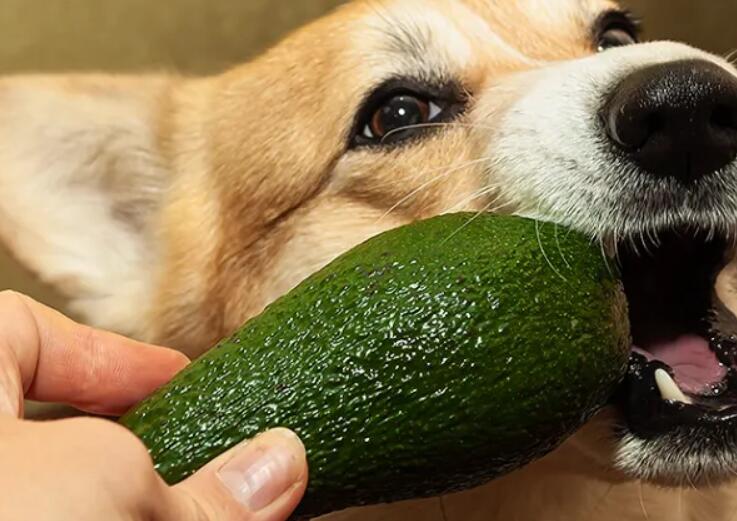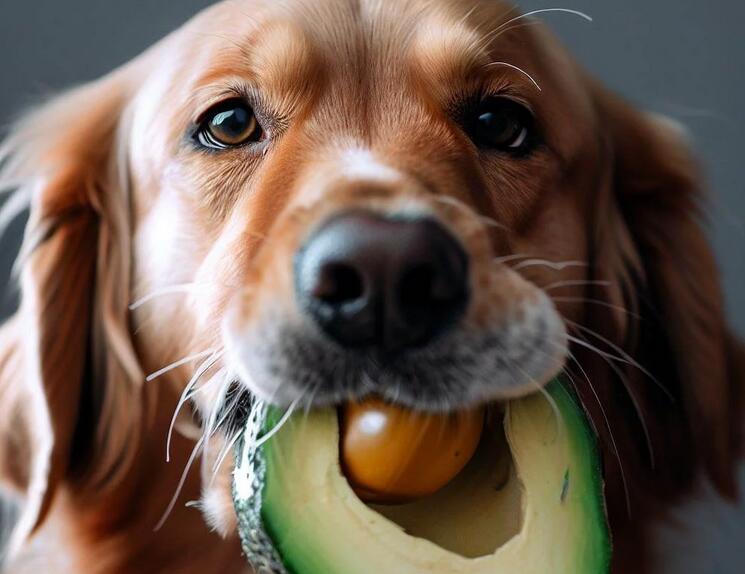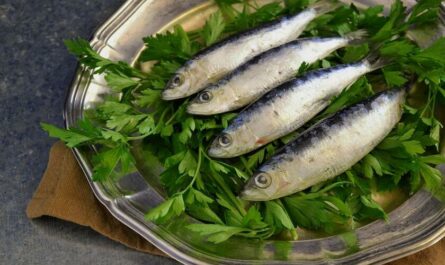Avocados have surged in popularity, gracing kitchen counters and restaurant menus worldwide. But as pet owners, we often question whether foods safe for us are equally safe for our canine companions. The question “Can dogs eat avocado?” is a controversial one, so let’s dissect the facts to ensure the safety and health of our beloved pets.
What Is Avocado? Benefits of Avocado for Dogs
Avocado is a nutrient-rich fruit known for its creamy texture and beneficial fats. It contains vitamins like K, C, E, and B-6, along with riboflavin, niacin, folate, pantothenic acid, magnesium, and potassium. These nutrients are important for overall health and can contribute to a shiny coat and healthy skin for dogs.
However, the focus when it comes to dogs and avocados is on a compound called persin, a fungicidal toxin present in the avocado plant. While persin is generally safe for humans, dogs are more sensitive to it. The levels of persin in avocados vary depending on the variety and ripeness of the fruit. It’s important to understand the risks associated with dogs consuming avocado and take necessary precautions.
The Risks of Avocado for Dogs
Most concerns about feeding dogs avocados revolve around persin, which is mildly toxic to dogs in large quantities. Here’s what you need to know:
- Toxicity of Persin: Persin is primarily found in the leaves, bark, and seeds of the avocado plant. It can cause health problems in some animals, particularly in large amounts. While dogs are less sensitive to persin than some other animals, it’s still important to be cautious about their avocado consumption.
- Choking Hazards: The avocado pit is a choking risk and can cause obstructions in the gastrointestinal tract if swallowed. If a dog swallows an avocado pit, it can get stuck in their throat or intestines, leading to serious health issues. It’s important to ensure that your dog cannot access avocado pits or any part of the fruit that may pose a choking hazard.
- High-Fat Content: Avocados are high in fat, which is one reason why they are often touted as a healthy food for humans. However, the high fat content can be problematic for dogs. While small amounts of healthy fats are important for a dog’s diet, excessive fat consumption can lead to weight gain and other health issues. Dogs with pancreatitis or other conditions that require a low-fat diet should not be given avocados.
- Vomiting and Gastrointestinal Upset: Some dogs might experience vomiting or diarrhea after eating avocado, especially if they consume too much. This can be a result of the high-fat content or the dog’s sensitivity to avocados. If your dog experiences gastrointestinal upset after consuming avocado, it’s best to avoid giving them avocados in the future.
- Weight Gain: Overindulgence in high-fat foods like avocado can lead to obesity in dogs. Obesity is a significant health concern for dogs and can increase the risk of various diseases, including joint problems, diabetes, and heart conditions. It’s important to monitor your dog’s weight and body condition and provide them with a balanced diet that meets their specific nutritional needs.
While these risks exist, it’s important to note that not all dogs will have adverse reactions to avocado consumption. Some dogs may tolerate small amounts of avocado without experiencing any ill effects. However, it’s crucial to monitor your dog closely and consult with your veterinarian before introducing avocado into their diet.
Can Dogs Eat Avocado Flesh?
In small quantities, the flesh of the avocado is less likely to cause issues as it contains lower levels of persin. However, the amount of avocado a dog can safely consume will vary based on size, breed, and individual sensitivity.
If you choose to feed your dog avocado flesh, it’s best to start with a small amount and monitor their reaction. Look for any signs of gastrointestinal upset, such as vomiting or diarrhea. If your dog tolerates the avocado well, you can continue to include small amounts in their diet as an occasional treat. However, it’s important to remember that avocados should not be a significant portion of your dog’s daily food intake.
It’s also worth mentioning that the pit of an avocado should never be given to dogs. The pit is not only a choking hazard but also contains higher concentrations of persin compared to the flesh. It’s best to dispose of avocado pits securely and keep them out of your dog’s reach.
The Avocado Pit and Skin: A Dangerous Snack
The outer parts of the avocado pose the most significant risks:
- The Pit: The avocado pit is large, hard, and slippery, making it a choking hazard for dogs. If swallowed, it can cause obstructions in the gastrointestinal tract, which may require surgical intervention. Avocado pits can also splinter, leading to internal injuries. It’s crucial to ensure that your dog cannot access avocado pits.
- The Skin: The tough and fibrous skin of an avocado can also pose a risk to dogs. While the skin itself is not toxic, it can be challenging to digest and may cause gastrointestinal upset or blockages if ingested. It’s essential to keep avocado skins out of your dog’s reach.
If you’re preparing avocados for yourself, be sure to dispose of the pit and skin in a secure manner, such as wrapping them in multiple layers of plastic bags before discarding them in a trash can with a secure lid.
Can Dogs Have Avocado Oil?
In contrast to whole avocados, avocado oil is generally safe in moderation. It’s often found in some specialized dog foods due to its beneficial fatty acids. Avocado oil can provide a source of omega-3 fatty acids, which can contribute to healthy skin and a shiny coat for your dog.
When using avocado oil for dogs, it’s important to follow the recommended guidelines and use it as directed. Too much fat in your dog’s diet can lead to weight gain and other health issues, so moderation is key. If you’re considering adding avocado oil to your dog’s diet, it’s a good idea to consult with your veterinarian to ensure it’s appropriate for your dog’s individual needs.
Can Dogs Have Avocado in Dog Food?
Some dog foods include avocado or avocado oil, claiming to offer coat and skin benefits. The key is the controlled amount of avocado used, which is typically low enough to avoid health risks.
If you’re considering feeding your dog a commercial dog food that contains avocado, it’s essential to carefully read the product label and consult with your veterinarian. They can guide the appropriateness of the specific brand and formulation for your dog’s unique needs.
It’s worth noting that the Association of American Feed Control Officials (AAFCO), which sets standards for pet food, has determined that avocado meal and avocado oil are safe for inclusion in dog food. However, it’s always best to consult with your veterinarian before making any significant changes to your dog’s diet.
Dogs and Guacamole: A Toxic Mix?
Guacamole often contains additional ingredients like onions, garlic, salt, and spices, which are toxic to dogs. Onions and garlic, in particular, can cause damage to a dog’s red blood cells and lead to anemia. Additionally, the added salt and spices can be harmful to dogs and may cause digestive upset or even salt poisoning.
It’s best to keep all forms of guacamole strictly off-limits to your furry friend. If you’re enjoying guacamole at home, be sure to keep it out of your dog’s reach and dispose of any leftovers securely.
How to Safely Feed Your Dog Avocado
If you decide to offer your dog avocado as a treat, there are a few important steps to follow to ensure their safety:
- Remove the pit and skin: Avocado pits and skins are potential choking hazards and should never be given to dogs. Remove these parts before offering avocado to your pet.
- Cut into small, manageable pieces: Slice the avocado into small, bite-sized pieces that are easy for your dog to chew and swallow safely.
- Introduce gradually: Like any new food, it’s important to introduce avocado gradually into your dog’s diet. Start with a small amount and monitor their reaction for any signs of gastrointestinal upset.
- Monitor for adverse reactions: After giving your dog avocado, keep a close eye on them for the next 24 hours. Watch for any signs of digestive discomfort, such as vomiting or diarrhea. If any adverse reactions occur, discontinue avocado and consult with your veterinarian.
Remember, every dog is unique, and what works for one may not work for another. It’s always best to consult with your veterinarian before making any significant changes to your dog’s diet or introducing new foods.

How Much Avocado Can I Give My Dog?
When it comes to feeding your dog avocado, moderation is key. The amount of avocado you can give to your dog will depend on their size, breed, and overall health.
As a general guideline, it’s recommended to limit avocado consumption to small portions as an occasional treat. One to two small slices of avocado, with the pit and skin removed, should be sufficient for most dogs.
Remember that avocados should not make up a significant portion of your dog’s diet, and it’s important to consider the overall balance of their nutritional needs.
What Happens If My Dog Eats Avocado?
If your dog accidentally consumes a small amount of avocado, it’s unlikely to cause any significant harm. However, if they ingest a large quantity or show signs of intolerance or toxicity, it’s crucial to seek immediate veterinary attention.
Symptoms of avocado toxicity can vary and may include difficulty breathing, vomiting, diarrhea, abdominal discomfort, or loss of appetite. While these symptoms may not occur in all dogs, it’s important to monitor your pet closely and address any concerns with your veterinarian.
What to Do If Your Dog Eats Avocado?
If your dog consumes avocado, it’s important to monitor them closely for signs of distress. Some dogs may exhibit symptoms of avocado toxicity, such as difficulty breathing, vomiting, diarrhea, abdominal discomfort, or loss of appetite. If you notice any of these symptoms or if your dog has eaten a significant amount of avocado, it’s crucial to contact your veterinarian promptly.
Your veterinarian will be able to assess the situation and provide appropriate guidance based on your dog’s circumstances. They may recommend monitoring your dog at home or suggest bringing them in for an examination to ensure their well-being.
Safer Alternatives to Avocado for Dogs
If you’re looking for alternative healthy treats for your dog, consider offering them:
- Apples: Apples are a good source of vitamins A and C, as well as dietary fiber. Be sure to remove the seeds and core before giving them to your dog.
- Carrots: Carrots are low in calories and high in fiber and vitamins. They make a crunchy and nutritious treat for dogs.
- Blueberries: Blueberries are packed with antioxidants, vitamins, and fiber. They can be served fresh or frozen for a refreshing and healthy snack.
These alternatives provide nutritional benefits without the risks associated with avocados. Always introduce new foods gradually and monitor your dog’s response to ensure they tolerate them well.
FAQs
Q: Can dogs eat a small amount of avocado?
A: A small amount of avocado flesh might be safe for some dogs, but it’s essential to watch for any adverse reactions. Monitor your dog closely for any signs of gastrointestinal upset or other symptoms.
Q: Is avocado safe for all breeds of dogs?
A: Dogs of different breeds may have varying sensitivities to avocados. Smaller breeds may be more at risk due to their size, while larger breeds may tolerate small amounts better. It’s crucial to consider your dog’s sensitivities and consult with your veterinarian.
Q: How can I prevent my dog from eating avocados?
A: To prevent your dog from accessing avocados, ensure that they are stored securely out of reach. Be mindful of where you discard avocado pits and skins to avoid any accidental ingestion.
Conclusion
While avocados offer many health benefits for humans, they pose several risks for dogs, primarily due to person and the potential for choking on the pit. As responsible pet owners, it’s crucial to consider these dangers and opt for safer, dog-friendly foods. Remember to consult with your veterinarian if you have any concerns or questions about your dog’s diet.





